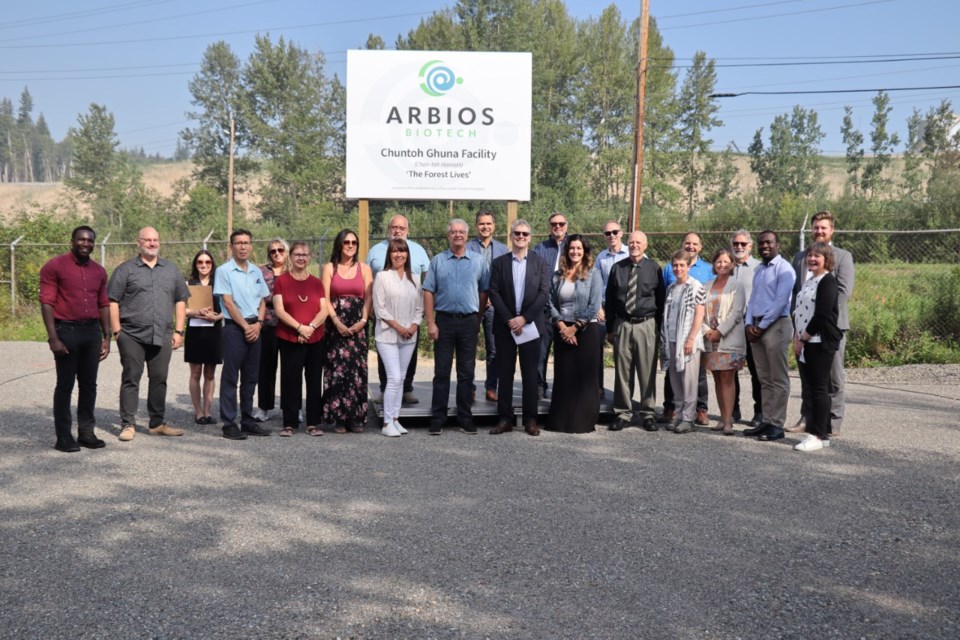A commercial-scale biofuel plant will have a bit of Indigenous flare when it's up and operating after a naming ceremony was held Monday for the fledgling facility.
To be located at a corner of Canfor’s Intercontinental Pulp Mill site, it will be known as Arbios Biotech Chuntoh Ghuna. Translated from the Dakelh language, Chuntoh Ghuna means “The Forest Lives.”
“Having a plant name in Lheidli T’enneh’s dialect, Dakelh, has great significance for our Nation members” said Lheidli T’enneh First Nation Chief Dolleen Logan.
“It demonstrates an observance of our ancestral lands and culture, and shows that it is possible for Indigenous communities and industry to work in harmony towards environmentally sound and mutually beneficial objectives. We are excited to be involved in a project that aligns with our environmental goals.”
The plant will use first-of-a-kind technology to convert sawmill residues, primarily bark, into high-value renewable biocrude, which can be further processed in refineries to produce low-carbon transportation fuels.
Arbios is a joint venture between Canfor and Licella Holdings Ltd.
“We are honoured and delighted that the Lheidli T’enneh First Nation have named our first commercial scale facility,” said Arbios CEO Alan Nicholl. “We are pleased with the support and collaborative approach the Nation has taken with respect to this project. We look forward to continuing to work together as we strategically use our resources to bridge to a lower carbon future and use advanced technology to drive higher environmental and economic value from lower value residues.”
Site preparation is underway and the majority of construction is slated for completion in 2023. It will initially consist of one processing line capable of converting 25,000 dry tonnes of woody biomass into the fuel.
The project is receiving support from both federal and provincial government in the form of including receiving credits under B.C.’s Greenhouse Gas Reduction (Renewable and Low Carbon Fuel Requirements) Act; funding from Sustainable Development Technology Canada; the BC Ministry of Energy and Mines and Low Carbon Innovation’s Innovative Clean Energy Fund; and the Department of Natural Resources Canada’s Clean Growth Program.




